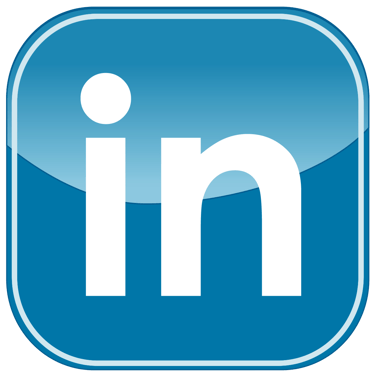What Makes a Home Care Agency an Attractive Acquisition Target in 2025? Lessons from Recent Deals and Market Trends
The home care industry is having a banner year in 2025. After a turbulent stretch marked by regulatory uncertainties and shifting reimbursement landscapes, M&A activity is back with energy, and agency leaders are asking: what makes a home care business truly stand out to buyers in today’s market? Whether you’re a HHA owner who’s been approached by a potential acquirer, or you’re just looking to future-proof your business, understanding what drives value can give you a major advantage—whether you plan to sell tomorrow, next year, or simply want to run a better agency. Drawing from 2025’s marquee deals and the latest market intelligence, let’s break down the key factors that make agencies attractive acquisition targets—and what lessons the current M&A wave offers for owners.
8/11/20255 min read


2025: M&A Momentum Returns in Home Care
If you’re sensing more activity in the market, you’re right. Q1 2025 was the most active quarter in home care M&A since 2023, with 29 transactions completed. Private equity funds are eager to deploy dry powder, while aging demographic trends and the normalization of value-based care keep the sector hot.
Despite some policy headwinds (think: ongoing Medicaid uncertainty and talk of budget cuts), buyer enthusiasm is being funneled into agencies that check the right boxes—meaning not all deals are equal, and premium valuations are reserved for agencies that truly shine.


Key Ingredients: What Buyers Want in 2025
1. Consistent, Predictable Financial Performance
This one’s a classic, but more true than ever. Financial health is where every deal conversation begins.
Steady revenue growth over the past 2-3 years is now table stakes; buyers want upward trends, not just single-year spikes.
Strong profit margins and clear, accurate financial reporting are non-negotiable.
Effective cash flow management sets premium agencies apart, especially if you’re handling a mix of payer types (Medicare, Medicaid, private pay, etc.).
According to a recent Home Health Care News analysis, agencies with diversified, growing payer mixes and stable profitability are leading the pack in valuation multiples.
2. Market Presence and Scalability
Established local/regional presence means you’re already competing—and winning—in your market.
Scalable processes allow new owners to grow without having to reinvent the wheel.
Referral networks and brand reputation matter: strong, loyal referral sources (hospitals, SNFs, physicians, community orgs) are prized assets.
In 2025, many “platform” deals are being built around agencies that have a “blue-chip” market profile: they’re known, trusted, and poised for expansion.
3. Operational Excellence & Adaptability
The labor crisis in home care is no secret. Agencies that can retain and attract caregivers, and keep quality high, command higher prices.
Talent retention and recruitment strategies are crucial. High turnover or chronic staffing shortages are major red flags.
Operational efficiency—lean administrative costs, well-trained office staff, and standardized processes—all increase valuation.
Adaptability: Agencies that have weathered industry changes (from PDGM to Medicaid waivers) with minimal disruption score big points.
4. Modern Tech & Compliance Infrastructure
Technology adoption isn’t just a bullet point—it’s a must. Buyers prefer agencies that use up-to-date EMRs, billing, scheduling, and analytics tools.
Data-driven decision making and supporting compliance through software are now buyer expectations, not perks.
Compliance records—including regulatory audits, accreditation, and internal controls—go through close scrutiny in due diligence.


5. Diversification and Risk Mitigation
Payer diversification matters more than ever in an uncertain regulatory world. Medicaid dependency is a hot button: over 70% of home and community-based services are Medicaid
funded, leaving some agencies at the mercy of political winds.
Agencies that can demonstrate “stroke of the pen” risk management—able to pivot or sustain operations should major policy changes occur—are seen as safer bets.
Real-World Examples: Recent Deals Highlight What Works
BrightStar Care & Family Tree Set the Bar
BrightStar Care, a large national franchise, became a top acquisition target thanks to years of sustained revenue growth, a bankable management team, and a founder who built a succession-ready operation. By focusing on operational excellence and planning for a leadership transition, they attracted competitive offers from private equity (Home Health Care News, August 2025).
Family Tree Private Care in Texas took a different path—never planning for a sale, but always operating “like we could sell tomorrow.” Their investment in systems, scalable processes, and a strong leadership culture put them in the driver’s seat when a strategic opportunity emerged (Home Health Care News, August 2025).
Lesson for NJ and national owners alike: Whether actively selling or not, building an agency that’s “always ready” gives you more control over your future.
Addus & Helping Hands: Strategic Expansion
In August 2025, Addus HomeCare acquired Helping Hands Home Care Service for $21.2 million, highlighting the value of regional market strength, stable operations, and consistent annual revenue growth (nearly $17 million annualized). This deal also reflects the ongoing buyer interest in agencies with a blend of personal care and home health services (Home Health Care News, August 2025).
Other Deals of Note
Aveanna Healthcare’s acquisition of Thrive Skilled Pediatric Care: Emphasized the appeal of specialty populations and geographic expansion.
Choice Health’s acquisition of Family Tree: Reinforced that buyers love “ready-to-grow” platforms with strong systems, not just raw census numbers.


2025 Market Dynamics: What’s Powering Today’s M&A Surge
Private Equity Influence
Buyers are getting more disciplined, not less. While there’s strong appetite for quality agencies, funds are choosier—and deals are taking longer, with extra due diligence.
Demographics: The Aging Wave
The “silver tsunami” isn’t a myth: over 11,000 Americans turn 65 every day through 2027, and more than 90% would prefer to age at home. This baseline demand keeps the fundamentals strong for home-based care, making high-performing agencies perennially attractive.
Industry Normalization & High Valuations
2025 has brought a sense of stability after several “wild west” years. Lower deal volume in recent quarters has actually increased competition for truly attractive agencies, pushing up values for sellers who check all the operational and compliance boxes.
Best Practices: Prepping Your Agency for M&A (and Success)
Thinking about a future sale—or just want to build a stronger business? Start here:
Benchmark your margins and growth against local competitors.
Invest in leadership development: Are you the only one who can “run” the show? Or do you have a team buyers can bank on?
Modernize your technology stack—from EMR to payroll and compliance tracking.
Deepen referral relationships and diversify your payer mix when possible.
Build a culture of compliance and ongoing operational improvement.
For more on succession planning and value protection, check out our Succession Planning in the Age of AI resource.
Final Thoughts for NJ Home Care Leaders
Today’s M&A market rewards agencies that are disciplined, future-focused, and resilient. Whether you want to grow, partner, or eventually exit, building the traits that buyers crave is the surest way to drive value—and safeguard your agency’s legacy.
It’s a seller’s market for well-run agencies, but it’s also a time when buyer expectations are higher than ever. Investing in growth, compliance, people, and technology isn’t just for future acquirers—it’s the best insurance policy against whatever comes next.
Have questions about how your agency stacks up or want to start a confidential conversation?
Connect with Senate Healthcare LLC for honest, experience-based guidance on growth, succession, or exit planning.
References:
— How BrightStar Care, Family Tree Became Attractive Targets For Acquisition, Home Health Care News, August 2025
— Addus Acquires Helping Hands Home Care Service For $21.2M, Home Health Care News, August 2025
— 3 Factors That Make A Prime Home Health Acquisition Target, Home Health Care News, July 2025
— Why 2025 Will Be a Great Year to Sell Your Home Health Agency, HomeCare Magazine, August 2024
Unlock Your 30-Minute Agency Succession Review
Maybe you're ready to expand your reach, or perhaps it's time to consider your legacy and the future of your business. Either way, it all begins with a conversation. Schedule a confidential, no-obligation call to explore what the future might hold for you and your business.
Complete the form, and we'll reach out for a chat...


© 2025 SENATE HEALTHCARE LLC.
ALL RIGHTS RESERVED


